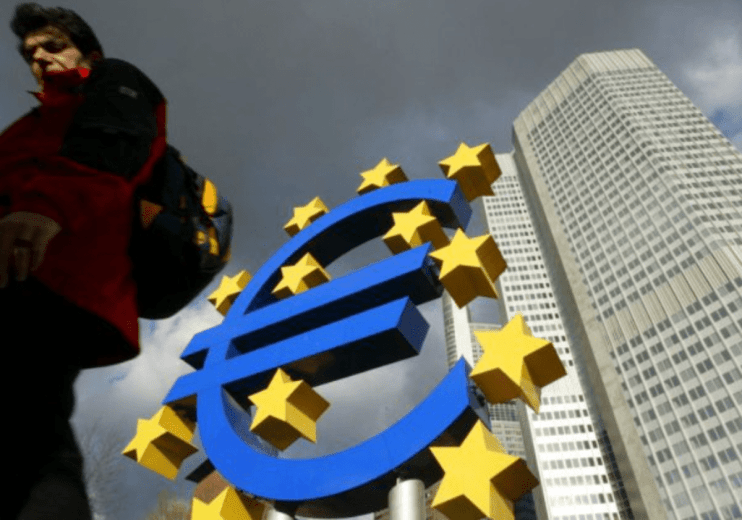ECB holds interest rates steady again but signals a cut is on the way

The European Central Bank (ECB) voted to keep interest rates on hold for the fifth consecutive meeting but gave its clearest signal yet that it will start cutting rates soon.
The decision means interest rates across the bloc remain at their highest level in more than two decades. The eurozone’s key interest rate remains at 4.00 per cent, the main refinancing rate at 4.50 per cent and the marginal lending facility at 4.75 per cent.
In a statement, the ECB said it would be “appropriate to reduce the current level of monetary policy restriction” if it receives further evidence that inflation is converging to target in a “sustained manner”.
The statement acknowledged that inflation has “continued to fall” while measures of underlying inflation were also easing. “Wage growth is gradually moderating, and firms are absorbing part of the rise in labour costs in their profits,” the statement said.
Speaking after the decision, Christine Lagarde, president of the ECB, said a “few” policymakers had backed a cut this time around, but refused to give guidance on timing for the first cut.
“I cannot pre-commit to any route for easing — more easing, less — unless and until we have the data, and we can analyze the data,” she said.
The monetary policy statement had warned that domestic price pressures are “strong and are keeping services price inflation high”.
The decision comes amid a debate about the likely timing of interest rate cuts, with a growing divergence emerging between the US Federal Reserve and the ECB.
Inflation in the eurozone is fast approaching the two per cent target. ‘Flash’ figures out earlier this month showed that inflation fell to 2.4 per cent in March, below market expectations.
Core inflation, which strips out volatile components like food and energy, dipped below three per cent for the first time in two years.
The eurozone economy meanwhile has ground to a halt, narrowly avoiding a recession at the end of last year. Survey data has pointed to an improvement since then, but the recovery will likely be weak.
The European Commission expects the eurozone to grow 0.8 per cent in 2024, downgraded from its 1.2 per cent estimate in November.
Lagarde noted that the risks to economic growth “remain tilted to the downside. Growth could be lower if the effects of monetary policy turn out stronger than expected.”
Economists think the ECB is on track to cut interest rates in June and today’s statement will do nothing to change that.
“We remain confident of a first rate cut in June, as we suspect does everyone else,” economists at Pantheon Macroeconomics said after the decision.
In contrast, hot US inflation data out yesterday has pretty much ruled out a June cut for the Fed.
US inflation has overshot expectations for three months in a row. In March, it rose to 3.5 per cent. Growth, meanwhile, has remained robust, with Fed officials revising up their expectations for growth in 2024.
Some economists, including Minneapolis Fed President Neel Kashkari, have raised the possibility that there will not be any rate cuts if inflation continues to move sideways.
A big question is whether the ECB will feel bound to wait until the Fed is ready to cut rates, but Lagarde stressed the ECB would “not be Fed-dependent”.
Neil Birrell, chief investment officer at Premier Miton Investors, said: “The ECB is undoubtedly preparing the way for a cut and we will probably see them move well ahead of the Fed”,